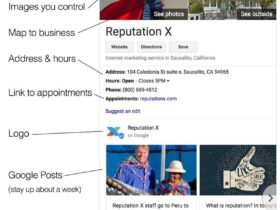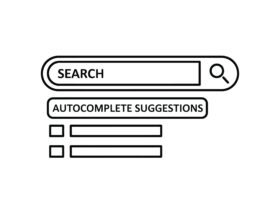Not long ago, most businesses only considered reputation when something went wrong. It was damage control—something reactive, not proactive. But that’s no longer the case. Today, reputation management has become a monthly expense, just like advertising, payroll, or software tools.
Why? Because your online reputation is always working, even when you’re not. It shapes what people find when they Google you, how they judge your credibility, and whether they decide to do business with you. If you’re not actively managing it, you’re leaving your brand vulnerable—and potentially losing business you never knew you missed.
What Is Reputation Management, Really?
At its core, reputation management means controlling what people see when they search for your name or business online. It combines review management, content creation, social media management, and search engine optimization (SEO) to help shape a positive online presence and suppress negative content.
More than just public relations, reputation management includes ongoing monitoring of various online platforms, crafting and distributing positive content, engaging with audiences on social media platforms, and applying advanced SEO strategies to make sure your message reaches the right people.
A well-rounded reputation management strategy focuses not only on fixing damage but also on long-term brand growth. It requires tools, consistency, and expert support to execute correctly.
Why Reputation Management Is No Longer Optional
Your reputation can change overnight. A single negative review, a frustrated customer’s post, or an outdated news article can move to the top of your search results—and stay there.
More than 90% of consumers read online reviews before purchasing. And 84% trust those reviews as much as personal recommendations. If your online reputation doesn’t reflect who you are today, you’re losing out on new business, referrals, and long-term growth.
This shift has made online reputation management a necessity, not a luxury. It’s now part of a broader marketing framework that supports business success by protecting and improving the brand image your customers and prospects see first.
Types of Reputation Management Services
Not all reputation management packages are created equal. Depending on your goals, industry, and current reputation status, you might need different levels of support. Here’s a quick breakdown:
| Service Type | Description |
|---|---|
| Basic Services | Includes review monitoring, basic responses, and social listening |
| Mid-Level Services | Adds SEO work, content creation, and targeted suppression of negative content |
| Full-Service Packages | Crisis management, proactive branding, influencer partnerships, and reputation repair strategies |
| Software Solutions | Tools for automating review responses, alerts, and brand sentiment tracking |
Businesses can choose to work with a professional reputation management company or use reputation management software to support internal teams. A hybrid approach often yields the best results.
What Are You Really Paying For?
The cost of reputation management depends on your business needs. If your brand has a damaged online reputation, you’ll need a different approach than someone simply looking to maintain a positive image.
Here’s what typically goes into a monthly plan:
- Monitoring social media platforms and industry-specific review sites
- Review management, including generation and response strategies
- Content creation to flood the web with accurate, brand-aligned stories
- SEO strategies to push down negative mentions and rank positive ones
- Reputation repair and crisis management planning for unexpected challenges
- Analytics and reporting to track improvements in your search engine rankings and brand perception
The range of reputation management packages spans from basic services to full-scale, comprehensive services led by a professional reputation management company.
How to Choose the Right Reputation Management Company
When searching for a service provider, look for:
- Proven experience with online reputation management services
- Clear examples of reputation repair or positive brand transformations
- Transparent reputation management pricing
- Access to custom-tailored strategies that match your business model
- Ongoing reporting and success metrics
Be wary of providers that promise overnight results or rely solely on automation. A good reputation management company combines tools with specialized knowledge and personal attention.
Is Reputation Management Worth the Cost?
Many business owners ask: “Is reputation management worth it?” The answer depends on how much you value trust, visibility, and long-term growth.
While the upfront reputation management pricing can feel high, it’s often a fraction of the cost of lost revenue caused by a negative online presence. Even small shifts in your star rating or a few pages of bad press can lead to major missed opportunities.
Let’s break it down:
- Businesses with a 4.5-star rating earn up to 30% more than those with lower ratings
- Companies with actively managed reputations see better retention, stronger partnerships, and faster conversions
- Failing to respond to reviews (especially negative feedback) creates a perception of negligence, even if it isn’t true
Reputation is now directly tied to search engine rankings, sales, and referrals. Investing in your image is an investment in your future.
Real-World Example of Reputation Repair
Consider a medium-sized law firm that suddenly faced a wave of negative reviews after a miscommunication with clients. Their average rating dropped from 4.6 to 3.2 within a few weeks, and new case leads fell off. By partnering with a reputation management agency, they launched a targeted strategy:
- Requested feedback from satisfied past clients
- Responded to every review professionally and personally
- Published positive articles highlighting wins and testimonials
- Improved their visibility with advanced SEO strategies
Within four months, they regained a 4.5-star average and saw a 40% increase in monthly inquiries. The monthly management cost paid for itself in revenue gains.
Are Reputation Management Costs Negotiable?
If you’re worried about affordability, know that reputation management varies based on your goals, current reputation status, and the type of services you need.
Some reputation management agencies offer a tiered pricing model, so you can start with basic services and scale as your needs grow. Others may offer flexible packages or long-term options to help manage higher costs.
It’s important to ask whether reputation management costs are negotiable—many providers will work within your budget, especially if you’re committed to a longer-term partnership.
Think of Reputation as a Long-Term Business Asset
Your reputation isn’t something you can afford to ignore or fix once. It needs upkeep. And in a fast-moving, online-first world, it’s become part of the monthly cost of doing business.
Managing online reputations means protecting what you’ve built, telling your story how you want it told, and making sure that the first impression people find online aligns with who you are.
The good news? With the right reputation management strategy, the payoff is significant: more visibility, more trust, better leads, and long-term business growth.
So when someone asks you why you’re paying for online reputation management services every month, the answer is simple: your reputation is your most valuable asset and deserves protection.















